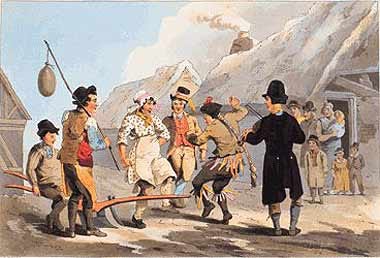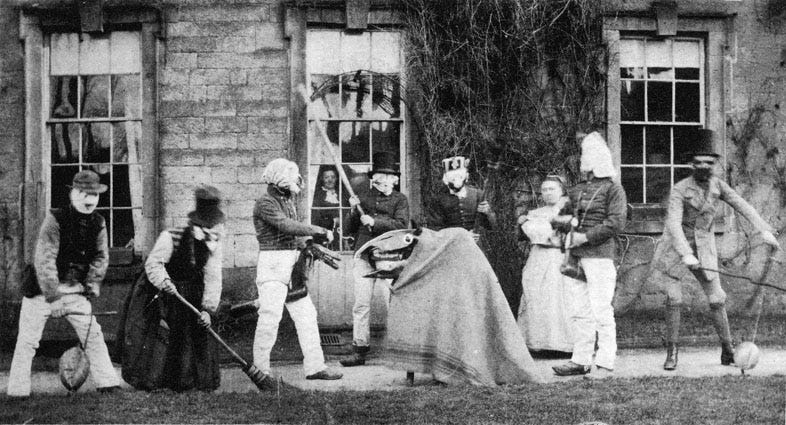Admit it. It’s early January. You thought about going on a diet. This is typical of the age in which we live.
The Bible teaches us to fast then feast: a time of contemplation and repentance followed by celebration and joy. This approach is a feature of many historic Christian denominations.
The world has no truck with this biblical approach. Graze. Binge! Gorge! Succumb to the sin of gluttony. Eat, drink and be merry for the diet starts tomorrow. Then feel guilt and shame. Make rash promises about the year ahead. Fail to live up to those promises and feel more guilt and shame.
In late December and early Jan, the secular calendar is scheduled to bombard us with adverts for new diets, plans, books, apps, groups and subscriptions.
These diets are, of course, wildly ineffective. If they worked, we wouldn’t need to keep hearing about them every year. We wouldn’t keep being presented with brand new approaches to diet and nutrition. But we are.
The supermarkets that sold us the diet book are stacked high with ultra-processed foods and increasingly denuded of fresh local vegetables. The supermarkets know full well you won’t be able to stick to the book’s plan. It is too weird and inconvenient. It doesn’t fit in with the rhythm of your life at all. And it doesn’t taste very nice.
Moreover, the book recommends faddish foods the supermarkets only stock in small packets for a very high price. Even if you wanted to follow this diet, you can’t afford it. Diet abandoned. Here comes another year of food guilt and food shame.
Early January is also the time of year in which you will be encouraged to spend more money you don’t have on an exhausting foreign holiday which will involve a flight that you will also be made to feel guilty about. Welcome to another year of the self-defeating secular calendar with all its disorder and dysfunction.
This is why I’m so passionate about the Christian calendar and take increasing trouble over writing about it weekly. The liturgical calendar is based on Biblical truths, tried and tested by our ancestors over the centuries. A key part of that calendar is fasting and feasting.
Something Is Seriously Wrong
The most basic thing in our lives – food – demonstrates that something is seriously wrong with the way we live. Food is plentiful, and yet we are both malnourished and obese. Somehow food is not plentiful in the United Kingdom. We don’t grow anywhere near enough of it, even though we could be self-sufficient. Farming has been made almost impossible, so more and more fields are being turned over to solar panels, housing and wild flowers. With changes in tax rules, smaller farmers will be forced to sell to ‘Big Farmer’ and this seem unlikely to go well.
How did we get here?
We forgot Plough Sunday. We forgot where food actually comes from: the one who gives it to us. Jesus himself reminds us to ask God for our bread daily. That is how the Lord fed his people in the wilderness, with daily manna. That is how he still feeds us today.
Plough Sunday is the Sunday after Epiphany. Epiphany being 6th January makes Plough Sunday 12th January, and Plough Monday the day after. But I’m writing about it this week because Sunday 12th January is also when we remember the Baptism of Christ, which I would also like to write about.
So what is Plough Sunday, where did it go and what happened next?
Plough Sunday
When we were an agrarian society, the fields were beckoning after twelve days of Christmas. It was time to plant the new crop which first required ploughing. Let us remember the faith that this action required. In early January, you are going to take some of your precious corn from your stocks, refrain from eating it, and put it in the ground. You know you will be extremely hungry by the end of March. But if the seeds are not planted, there will be nothing to eat in the future.
Before the plough was put out into the field, it was dragged into the local parish church for blessing. After all, it is the Lord who causes plants to grow, the sun to shine and the rain to fall. Without Him, we labour in vain. For all of our brilliant agricultural science and rediscovery of ‘the old ways’, we have forgotten this.
The medievals made sure they did not forget this. On Monday, they would drag the plough around the parish and invite donations. This money was not for the farmer, but for a candle or ‘plough light’ to be purchased, lit and maintained in the church. This seems to be a healthy practice to me.
Naturally, it was corrupted by our superstitious desires. Then abolished in the Reformation. According to Old Parish Life, in the 1540s, John Bale criticised the church for using frankincense from the Epiphany celebrations of the Magi “in the… conjuring of their ploughs.” Rites and rituals which symbolise or embody a spiritual truth teeter over into magic, designed to game the system and force an outcome. Ironically, the word ‘magic’ comes from ‘magi’ whom we find in scripture correctly and mysteriously identifying the Christ Child based on astrology, but that’s one for another time. For now, let us note that Plough Sunday began to decline in the sixteenth century.
It declined further over the next few hundred years which saw the mechanisation of agriculture and the growth of factories. When I wrote “No Harvest Please, We’re British” back in September, I noted:
the sudden urbanisation of the population in the 19th century. In 1801, only 17% of the population of England and Wales lived in cities. By 1891, it was 72%. One might call that a mass exodus of the countryside. It has to be one of the biggest changes in English history.
Enclosures and more efficient agriculture reduced the employment opportunities in the countryside. Moreover, the increased output meant that cities full of factories and houses without gardens could be fed with food moving faster and faster, first by canal, then by rail and also by road.
Paganism Adores a Vacuum
Plough Sunday was not quite dead. But it morphed into something distinctly not Christian. It became pagan. That’s what happens when we cut away Christian rituals: we don’t remain free of superstition for long. We are merely creating room for non-Christian ones.
Old Parish Life quotes an account of a ploughing ritual in Northamptonshire from 1854. In a vivid display of pagan pageantry, the plough is decorated with ribbons and processed through the village by five men with blackened faces. The first is grotesquely dressed and wearing a large wig and called ‘The Master’. Two wear women’s clothes and the other two have hunched backs “on which are sewed the knave of hearts; these two are called Red Jacks, or Fools.” They carry besoms (witches’ brooms) and shake a box for money. Give generously or they may plough up the soil in front of your house. Christian charity becomes a protection racket. I think I prefer the plough light in the Church.
Since Victorian times, agriculture has been both romanticised for its peace and bucolic rhythms – see Thomas Hardy and River Cottage – while also being demonised for pouring chemicals all over the soil – see George Monbiot et al. We can’t decide if farmers are heroes or tax-dodging villains.
But who cares? You probably don’t know many people who work on the land. By 2023, only 1.4% of the UK’s workforce of 33.1m people were employed in agriculture. In England, that amounts to fewer than 300,000 people. 67% of that number are over 55. Agriculture only contributes £13.7bn to the UK economy. That’s 0.56%. Yes, half of one single solo per cent. So does any of this matter?
More Precious than it Appears
Food may be cheap compared to the cost of household expenditure fifty or a hundred years ago. But that low cost hides food’s importance. We literally cannot live without food. The last few years have shown that the nation is, at any one time, only a few days away from food shortages and empty shelves. You can panic-buy food but you cannot panic-grow it.
You can panic-buy food but you cannot panic-grow it.
We are unlikely to starve because of climate. In fact, more CO2 is better for growing plants. We might starve because of hubris and complacency. We need to reconnect with food, not in a healthy way but a Christian way. After all, God created seed-bearing plants, as well as the sun and the moon which give us seasons. He has woven these things into the tapestry of time itself.
For Plough Sunday, why not have a family Sunday roast with vegetables from a box you can have delivered? We use Riverford (although not every week). But there are others like Abel and Cole. You might need to order it this week. Why not give it a go? It’ll help you remember that carrots have green tops and don’t grow in clear plastic bags.
Did you enjoy that? If so, you could have the latest instalment of Cary’s Almanac emailed to you for free every Friday lunchtime. Just put your email address here:
Could you help Cary’s Almanac by sharing it with someone? Who could that be? Here’s a link to help you send it on:
Being Funny for an Hour
2025 is the year I start touring my new show, God, the Bible and Everything (in 60 minutes). I’m working really hard on it, and it’s going to be really funny. If you’d like me to stop by your church and be funny for an hour, please get in touch.
If you reckon you scrape together an audience of 50 or so, it’s almost certainly financially viable all round.
No Harvest, please. We're British.
September is the month of Harvest Festival. But when is it? Which Sunday is the right Sunday?











Yes farming does matter. The majority work long hours for less reward than you might imagine. It will be a great detriment to loose them.